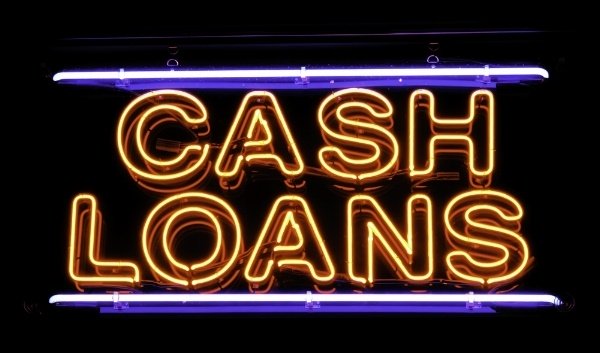If you are looking to borrow between £1,000-£25,000 then it can make sense to have a look at whether using a personal loan is better than applying for an unsecured business loan. But beware, personal loans have their drawbacks.
According to ThisIsMoney, the simplest way to start (or finance) your own business is through self funding. You can do this by using your own savings, investments or assets.
Financing your business this way can often mean having all the advantages of an unsecured business loan, without any of the hassles of dealing with the bank. You maintain control over all of your business as well as demonstrating that all-important aspect of personal financial commitment to any potential future investors or lenders.
Is Using a Personal Loan to Fund a Business Legal?
This isn’t an easy one to answer, as it depends entirely on your motivations for getting a personal loan and exactly what you say to the bank when applying for it.
All banks have their own small print when it comes to the terms and conditions of a loan and they commonly read:
“A Personal Loan from Santander can be used for a wide range of purposes, however, we are unable to lend for certain purposes…” (from Santander Personal Loans)
What banks will stipulate is that whether you use a personal loan to fund your business or a business loan, the chances are they are going to subject you to a personal guarantee to back it up. Effectively meaning that both become the same thing.
For instance take the example of James:
James wanted to borrow for a new business venture with two partners in order to buy stock and inventory. His business partners were both unemployed and both had sufficient enough debt for neither to be considered creditworthy. James’s (and the business’) only option is for the employed James to take out a personal loan and have all the risk of paying back that loan held against him.
How he then deals with the legality of the responsibility of the loan with his business partners can then become a contentious issue if it isn’t immediately successful.
- Who is responsible for the repayments?
- What happens if the business cannot afford the repayments?
Although this won’t be confusing from the bank’s perspective; they will hold James solely responsible for paying back the loan as per the terms of his personal guarantee.
And the business world is littered with examples of people setting up their businesses using personal loans or home improvement loans. Sometimes they are explicitly allowed and encouraged by the banks. Other times personal loans are expressly forbidden to be used for business purposes.
The safest and most practicable way is usually to be very clear about the reasons for getting a loan.
The Difference Between a Personal Loan and a Business Loan
While the underlying mechanics of a business loan and a personal loan are the same, there are a few differences and it is important to be aware of them. As with any kind of finance, it’s important you are taking out the right kind of loan.
Unsecured Personal Loans – The big advantage here is that you will not be required to put up your home or property as security against your borrowing.
However, be careful and upfront in how you wish to use your personal loan. Some banks stipulate that their personal loans are not for commercial use, while others allow personal loans to be taken out for home improvement or for car loans and for a wide range of other uses.
Because banks often don’t need so much detailed information, personal loan payments tend to be faster. However, they will still credit check you to ensure your ability to repay the loan.
- For individuals, not businesses
- Not required to put up security
- Banks reserve the right to refuse a loan for certain purposes
- Subject to credit checks
- Faster payments.
Business Loans – Most business loans are secured against either your business premises, stock or your own property and they are often treated like mortgages because of this.
Most business loans are for higher values than personal loans and often include bespoke features included for the benefit of both customer and lender.
You will also find a common requirement for getting a business loan is proving or establishing that you have already financially invested in your business as well. Banks like to see personal stakes involved, prior to their own offer of finance.
Funding often comes with financial support and as nearly every business will at some point require some sort of business funding, there are loan products that cater for almost every industry type.
- Secured against assets
- Higher value
- Bespoke features.
When is the best time to use a personal loan for your business?
There are three reasons you might find that using a personal loan looks like a more desirable option than applying for a bank loan.
1. You are starting up
If you haven’t yet opened for trading, but need cash in order to do so, then you might find that getting business funding can take time and effort. These are things you might not have spare right now.
A personal loan works in just the same way as getting a loan from a family member, with the huge exception that you are not indebted to those nearest and dearest to you if they start getting cold feet or begin having to ask those awkward questions of “when can I expect repayment?”
We should add that although start-ups often get a hard time accessing business loans, forcing many to seek personal loans, there are still many alternative lenders willing to offer start-up business loans.
2. You only need a small sum
Small business loans aren’t usually big earners for banks, which is why many of them are reluctant to lend small amounts to small businesses and start-ups. The cost of setting up a loan for a small amount is often the same as that of setting up much larger loans but is significantly less lucrative for the banks. Whereas personal loans are often much easier to secure and aren’t dependent on the same type of business analysis prior to agreement.
3. A lack of assets
Personal loans aren’t as likely to need collateral as small business bank loans in order to secure them. Usually, if a small business owner or start-up has enough personal collateral the bank will be happy to lend against an individual rather than a small business. Banks always feel more confident in getting their money back through personal loans. Business loans are subject to much more scrutiny and underwriting.
Using Personal Money To Fund Your Business
While using a personal loan is a great way to add cash to your business, it isn’t the only way in which your personal finances can be used.
Ok, your personal money is important, but so is building a business that can set you up for the rest of your life too. It can be a difficult balancing act: Keep hold of your savings or invest in your business and make more money.
Your best options for funding will be influenced by the resources you have; your family and network, the extent of your assets, liabilities, income level and credit score.
There are four options you have for self-funding:
Using Personal Loans – As detailed above there are some very good reasons to look at your own sources of raising funding, but there are pros and cons to all types of self-funding, even personal loans:
Pros:
- Can be used to fund or set up a small or low-revenue business
- Loans are usually agreed upon quicker and incur less paperwork
- No assets are required, only a personal guarantee
- Rates are often more competitive.
Cons:
- A good level of credit is required
- Loans are usually limited to less than £25,000
- Lenders often stipulate what their loans can and cannot be used for.
Using Credit Cards – If you can expect some sort of immediate return on your business then using credit cards can be a relatively inexpensive type of funding. But be warned, if payments are not made, they can become very expensive.
Pros:
- Rates are good when balances are cleared
- Help build a credit score.
Cons:
- Need good credit to get access to high-balance credit cards
- There are plenty of things, like your payroll, that cannot be paid for using cards.
Equity in Property – Using your own home as equity for funding your business is a tactic as old as house building itself. Anyone short on cash, but with conviction in their business, will at some point have put their home up against their business.
Pros:
- Very popular among start-ups and entrepreneurs
- Secured loans tend to have more competitive rates.
Cons:
- You could lose your home.
Family/Friends Loans – Having those closest to you believe in you most can be the biggest motivator in getting your business off the ground. Friends and family can invest for a number of reasons, either for a silent share in the business, a voting share, or just to make a profit.
Pros:
- No credit or assets need to be used
- Can be inexpensive
- Loans can be set up very quickly.
Cons:
- Non-payment can be devastating to relationships
- It can result in giving up a share or a level of control over your business.
Should You Use Personal Loans For Business?
Whether using a personal loan for your business is a good idea depends on a variety of factors. If you have a good level of personal credit and are looking for a small sum of less than £25,000, then personal loans can be hugely beneficial.
However, it is important that by doing so you don’t go against the terms and conditions of the loan and you aren’t deceiving the lender by doing so.
There are also certain times in the life cycle of your business that makes personal financing an attractive option. For example, if you are a start-up, need just a small amount of money, or don’t hold any assets.
There are other ways in which you can self-fund your business including credit cards, loans from family and friends or through using your own property as collateral, but none of them have the same flexibility as personal loans, which can be used as unsecured business loans.
However, if this option doesn’t work for you, there are always a number of other options available to you. Check our competitive, unsecured business loan rates and options. We specialise in finding funding options for those that don’t think they have any.


